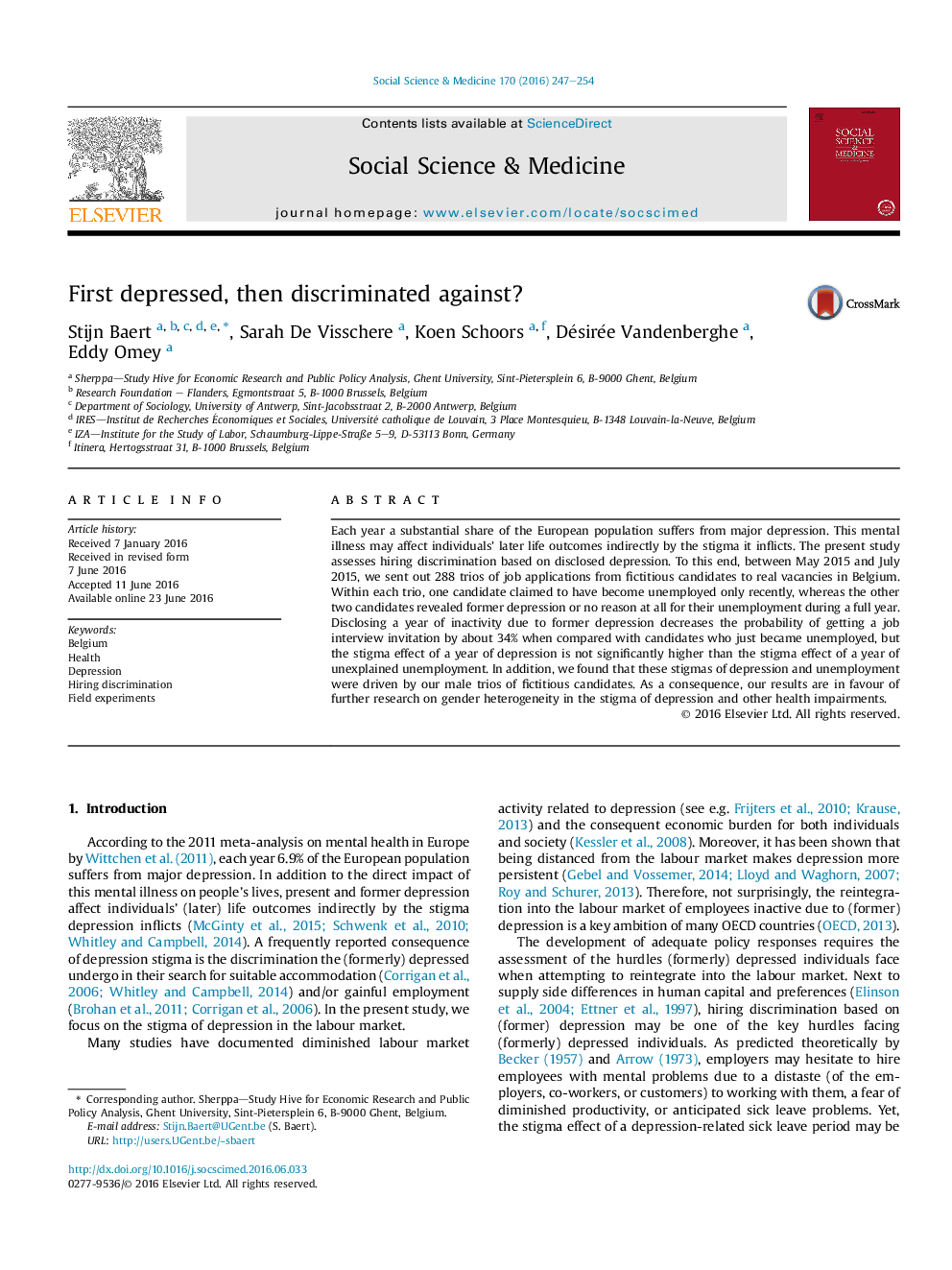| Article ID | Journal | Published Year | Pages | File Type |
|---|---|---|---|---|
| 5046874 | Social Science & Medicine | 2016 | 8 Pages |
â¢We investigate hiring discrimination based on former depression in a direct way.â¢We send out trios of fictitious job applications to real vacancies in Belgium.â¢Inactivity due to depression lowers hiring chances.â¢The stigma of depression is not higher than the stigma of (unexplained) unemployment.
Each year a substantial share of the European population suffers from major depression. This mental illness may affect individuals' later life outcomes indirectly by the stigma it inflicts. The present study assesses hiring discrimination based on disclosed depression. To this end, between May 2015 and July 2015, we sent out 288 trios of job applications from fictitious candidates to real vacancies in Belgium. Within each trio, one candidate claimed to have become unemployed only recently, whereas the other two candidates revealed former depression or no reason at all for their unemployment during a full year. Disclosing a year of inactivity due to former depression decreases the probability of getting a job interview invitation by about 34% when compared with candidates who just became unemployed, but the stigma effect of a year of depression is not significantly higher than the stigma effect of a year of unexplained unemployment. In addition, we found that these stigmas of depression and unemployment were driven by our male trios of fictitious candidates. As a consequence, our results are in favour of further research on gender heterogeneity in the stigma of depression and other health impairments.
